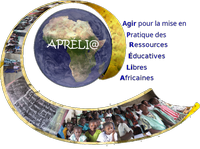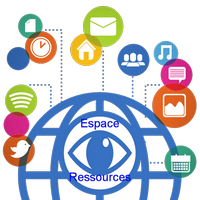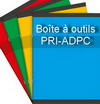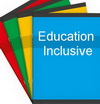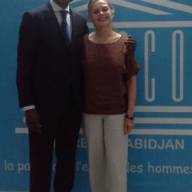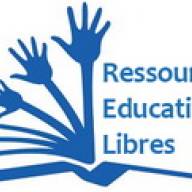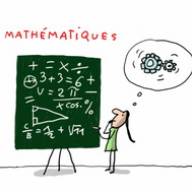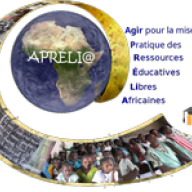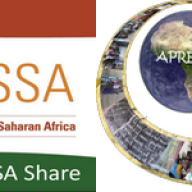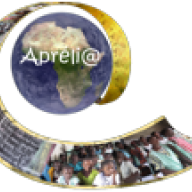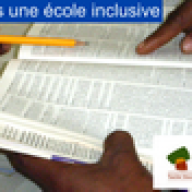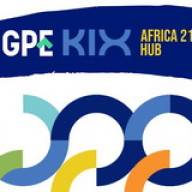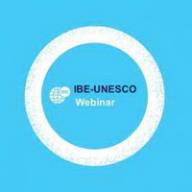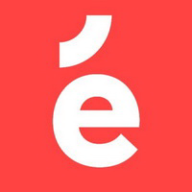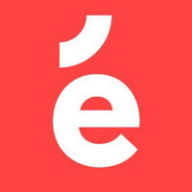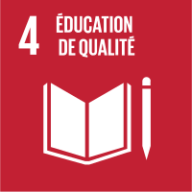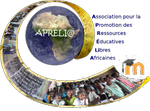Geneviève Puiségur-Pouchin
Présidente d’Apréli@
Atelier GeSCI-PANAF
May 26, 2010, e-learning Africa Conference, Lusaka, Zambia
Thank you, Pr Karsenti, for giving me the floor.
Firstly, I would like to warmly thank the organizers of this panel, GeSCI and Panaf; indeed, we are very honored by your invitation to debate on such a critical issue, with such high-level international experts, during this most important African annual ICT event.
We created Apréli@ (Association pour la promotion des ressources éducatives libres africaines/, Association for the promotion of African Open Educational Resources) in order to address the lack of African digital resources for teaching and training, specifically in French-speaking African countries. We all know that endogenous digital resources for teaching and training are a critical prerequisite for successful ICT implementation and integration, as reminded by the recent Bamako+5 conference, which brought together twelve French-speaking, five English-speaking and three Portuguese speaking African countries, and explored the best ways of using ICTs for teacher training and development.
From the beginning, our approach is based on networking and building multiple and fruitful partnerships involving all stakeholders, including private sector, in order to share the points of view and design the most relevant OER production programs. Indeed, as regards the technological aspect the issue of equipment, environments, and technological devices to provide access to local and remote resources, must be closely suited to the teaching and learning context.
This is the reason why we stress that the best way for companies to be able to provide the most relevant technical solutions is to participate in experiments monitored by research and then evaluated for modeling and adaptation.
More specifically, we really wish to take them on board in our pioneering experiment Reli@ (Open educational resources for @frican teachers), currently in its pilot-phase of digital contents production.
Reli @ activities, taking place in Dakar, are coordinated by Apreli @ Senegal, in partnership with the municipality of Mermoz Sacré Coeur. I’m very glad to inform you that Apréli@ Sénégal co-director is among us to-day; I’m speaking of our dear Alioune Moustapha Diouf, ICTs General Inspector of Senegal, distinguish member of Ernwaca, also Panaf principal researcher for Senegal. Dr Diouf will be able to tell you more about the progress of Reli@ activities, which involve teachers in the field, with a focus on women teachers, supported by teachers’ trainers from FASTEF ( Faculty of Sciences and Technologies for Education and Training , ex ENS), as well as schools directors, municipal officials and school management committees.
This phase of production is itself prior to the phase of schools equipment by the municipality, as a part of the project “digital schools” of Mermoz/Sacré Coeur municipality, due to be a model for the generalization to all schools in Dakar.
The experiment is integrated into the Panaf Senegal agenda. In order to ensure the most relevant technical solutions to access Reli@ resources in local or remote context - such as through Digital White Board or through mobile phones, mobile pads - and assess them in this context, we wish to pursue collaborations with ICTs companies, which will have there the opportunity of testing and adapting their technological solutions.
Furthermore, this pilot phase of Reli@ is part of a larger project, developed with the FASTEF, aiming at achieving the first Digital teachers’ training Institution, Reli@ schools, among other, welcoming its trainees.
What are the opportunities for developing/enhancing public/private partnerships for Research in ICT Education and Development Africa?
In the frame of our partnership with the ADEA (Association for the Development of Education in Africa), we had the privilege to lead the theme of ICT during the recent conference Bamako+5. Recruitment and training of the 4 million teachers needed before 2015 to achieve the Millennium goals is one of the most important challenges Africa has to face. We all know that without ICT, we cannot achieve this goal, and the question is now how to use ICT in the best ways?
During the conference, discussions on this theme were particularly rich and constructive. The Conference issued a list of recommendations on the strategic use of ICTs, and listed the priorities, first of them being the production of African contents for learning and teaching, and the ways to achieve them. It emphasized the urgency of mobilizing all participants, at local, regional, international levels, including Universities, Research, and private sector, and asked African Union and Nepad to launch an ICT-based teacher-training plan.
Actually, at Bamako+5 Conference, participating countries noted that some of them have managed to design comprehensive models of ICT-enhanced teacher education, the most advanced of these countries being Senegal. So, these countries want now to benefit from the experience of the most advanced, and are asking for sharing and collaborations.
What emerged from the conference was indeed a general acute awareness that we must now move altogether from the phase of experiments to the phase of capitalization and modeling, and towards generalization lead by the institution. This is a great opportunity for education to perform a systemic jump, but the question of implementation and adaptation must be absolutely seriously pretreated. That means that Research should urgently explore the most promising ICT-based countries-models, identify and assess the conditions of their success, including the technological aspect, and those of their adaptation to different countries or contexts.
With this in the mind, I suggest that mixed teams of researchers and private partners collaborate, to find out how Asian countries such as Malaysia, South Korea, Singapore, China, India, have succeeded on upgrading their educational systems on such a dramatic scale, allowing them to be now fully involved in the knowledge global society. In a large extend, these countries performed this great educational leap forward through a systematic use of ICT-based strategies, involving private companies, such as Shell and Microsoft in Malaysia. They thus moved away from a resource-based economy, which is still the case for many African countries, to one generated by innovations. These countries have expressed their willingness to share their experience with African countries, and to cooperate with them.
Moreover, we also have the opportunity of taking advantage of many international on-going major studies, such as Assessment and Teaching of 21st Century Skills and Innovative Teaching and Learning (ITL), supported by Microsoft. The purpose of this research project is to contribute information and policy insights on effective education transformation. It is guided by a team of international advisors from organizations such as UNESCO and OECD and conducted in close collaboration with government partners in each participating country; this research is currently carried out in Finland, Indonesia, Russia, and Senegal. Couldn’t we propose these international teams to collaborate with African researchers’ networks?
Allow me to make another suggestion: the Senegalese Ministry of education, with the support of USAID, has just undertaken an extensive and ambitious program ad Medium level, due to last 5 years, ICT’s use being one of the major components of this program, another one being strong public/private partnerships, national and international companies bringing technical and financial support. One other original and very interesting point is that USAID and government have managed to create a true social mobilization for this program; for that, they have put up a real strategy to bring together partners and get their support and participation. For example, they organized several roundtable discussions with the private sector and they communicated widely in the professional and mainstream media. They partnered with the main national newspaper "Le Soleil”. The newspaper will publish four supplements called "Special Basic Education" every year. The first of these supplements was published the 3rd of May; it is really well designed and succeeds in making clear those complex and critical issues in a very educational way. So I suggest that Panaf studies this program in partnership with the companies involved in, Intel being one of them.
So, I think we really have a lot of excellent opportunities to bring about a systemic change. In this critical goal, Research has definitely a major role to play, so as to allow policy makers to make the best choices. Indeed, Research and private sector should build together a strong advocacy to trigger social and political mobilization, by designing African ICT- enhanced educational best models, to ensure the economic sustainability of education development, in addition to facilitate the on-going transition from teacher-centered to student-centered pedagogy.
More broadly, I’m fully convinced we should urgently increase the sharing of our information and our experience, develop and strengthen synergies, create spaces and opportunities for collaborative work, bringing together Francophone, Anglophone and Lusophone countries, as ERNWACA already does.
For this purpose, ADEA is currently undertaking the construction of an ICT committee, which aims to bring together all stakeholders, at all levels, including private sector and research, in order to enable the largest collective reflection, to identify and support the best ICT-enhanced educational strategies. This ICT committee is a great opportunity to really act as a catalyst for education systemic progress.
To conclude, I strongly advocate that we together set up a dynamic of creative, innovative partnerships, to ensure a high quality African school. We really need to think out of the usual framework, and gather all the intelligence, skills, talents and energies of all actors : researchers, practitioners, parents, policy makers, civil society, private sector, and develop a social mobilization for African school. To achieve this goal, we also should communicate more deeply, better, larger, beyond our traditional ways and spaces, in order to reach all audiences.
I warmly thank you for your attention.
